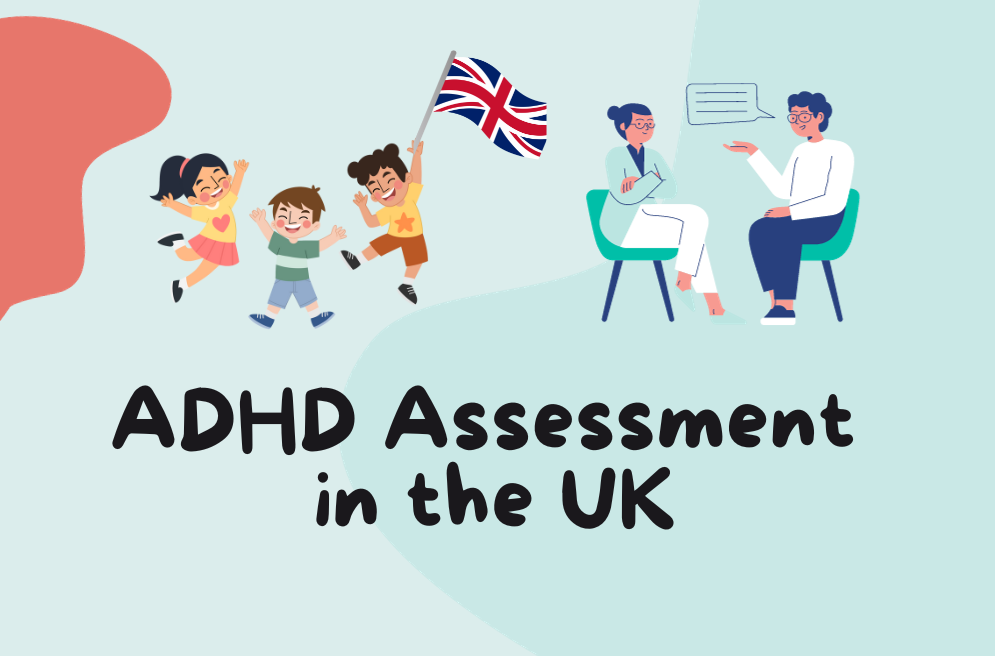Understanding ADHD Assessment in the UK: A Comprehensive Guide by Dr. Adeel Sarwar
November 25, 2023 - Reading time: 6 minutes

By Dr. Adeel Sarwar, Clinical Psychologist
Attention-Deficit/Hyperactivity Disorder (ADHD) is a multifaceted condition that affects individuals across various stages of life.
Before Getting an ADHD Assessment
Before embarking on the journey of an ADHD assessment, it is crucial to have a foundational understanding of what ADHD entails. Learning about ADHD traits is the first step. This helps in identifying and articulating personal experiences that may align with ADHD symptoms. Additionally, engaging with resources such as the ADHD Aware newsletter and attending support meetings can offer invaluable insights and support from others who may be navigating similar challenges.
Who Can Assess ADHD in the UK
In the UK, the process of diagnosing ADHD is carried out by various professionals, each playing a unique role:
- Psychiatrists: These are medical doctors who specialize in mental health. They can diagnose and prescribe medication for ADHD, offering a comprehensive approach to treatment.
- Specialist ADHD Nurses: These professionals are qualified for ADHD assessment and, depending on their accreditation, may also prescribe medication.
- Psychologists: They can assess ADHD but do not have the authority to prescribe medication. Their role often involves conducting detailed psychological evaluations.
- GPs and Counselors: While they play a significant role in the care process, they cannot provide a formal diagnosis of ADHD. However, they can be instrumental in referring individuals for further assessment.
How to Get an Adult ADHD Assessment in the UK

The pathway to getting an adult ADHD assessment in the UK involves several options:
- NHS Assessment: This standard route involves discussing ADHD concerns with a GP, completing a screening tool, and then being referred for an NHS assessment.
- NHS Assessment via ‘Right to Choose’: This option, available in England, allows individuals to choose their mental healthcare provider.
- Private Assessment: A quicker alternative but often more costly. Transferring to NHS treatment is possible but can be complex.
What to Expect at an ADHD Assessment
During the assessment, which is conducted by a specialist such as a psychiatrist, psychologist, or nurse, several aspects are covered:
- The assessment may be in-person or via video call, depending on the circumstances.
- It involves discussing one's mental health history and family health issues, which are crucial in understanding the context of the symptoms.
- The assessment is based on the DSM V criteria for ADHD, which requires demonstrating at least six traits from both childhood and the present.
After the ADHD Assessment
Post-assessment, the clinician will discuss the diagnosis and potential treatment options, which may include medication or Cognitive Behavioral Therapy (CBT). If diagnosed, a referral back to the GP for shared care is typically the next step. The process also accommodates seeking an alternative diagnosis or private assessment if necessary.
Challenges in ADHD Diagnosis for Adults
Diagnosing ADHD in adults comes with its own set of challenges. These include the willingness of the GP to refer, the preparedness of the patient to articulate their experiences, and how patient demographics can impact the diagnosis process. Additionally, biases and preconceived notions within the medical profession can act as barriers to an accurate diagnosis.
Advice for Speaking to GPs

When speaking with GPs, it's important to be informed and assertive. Utilizing resources such as ADHD UK support letters and NICE 87 guidelines can be helpful. If necessary, don't hesitate to seek a second opinion or consider changing your GP practice.
ADHD Screening for Children and Adults
The process of evaluating ADHD varies for children and adults:
- Children: The evaluation is often initiated when symptoms disrupt a child's ability to function at home and in school. The role of schools in screening is pivotal, as they must screen children for disabilities that affect learning. Pediatricians play a key role in the initial screening.
- Adults: Approximately 4% of American adults regularly exhibit ADHD behaviors. Adult diagnosis can occur at any age and involves a detailed evaluation process, often initiated by a primary care provider or a specialist in mental health disorders.
The ADHD Screening Process
The ADHD screening process is meticulous and tailored to each individual. It involves the guidelines from the DSM-5-TR and is a three-step process: identifying symptoms, ruling out other causes, and identifying comorbidities. The duration of the evaluation typically ranges from 1-3 hours and may involve several visits for a complete assessment.
Results and Follow-Up
Following the screening, results may indicate ADHD or another condition. The type of ADHD diagnosis could be one of three presentations: Predominantly Inattentive, Predominantly Hyperactive-Impulsive, or Combined Presentation. The treatment plan may include medication, therapy, and lifestyle changes and often requires adjustments to find the most effective combination.
Face-to-face assessments
While face-to-face assessments are currently the standard and recognized by insurance companies, efforts are being made to have online self-diagnosis tests recognized. Understanding the complexities of ADHD and its assessment process is vital for ensuring that individuals receive accurate diagnoses and effective treatments. As professionals in the field, we strive to make these processes more accessible and inclusive for all seeking guidance and support in their ADHD journey.

